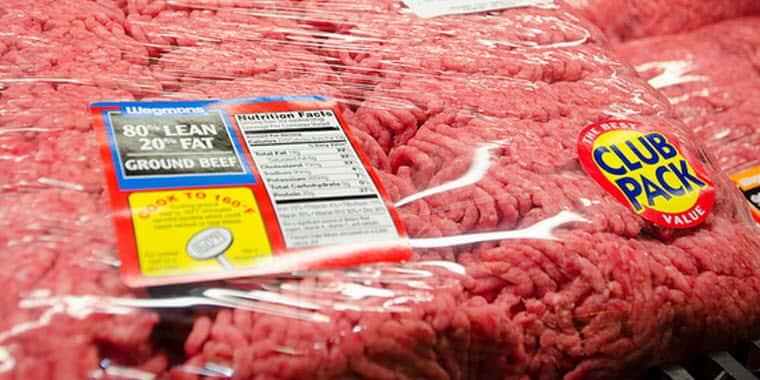The fate of an antitrust lawsuit filed by two South Dakota ranchers against major meat packers, alleging they are labeling beef products as “Products of the USA” when most of the meat is not produced in the U.S., will be decided by a federal appeals court.
Ranchers Tim Taylor and Bryce Baker filed a class-action lawsuit in 2023 alleging the labeling practices of JBS Foods USA, Tyson Foods Inc., Cargill Meat Solutions Corp. and National Beef Packing Company LLC, have cost ranchers across the country billions of dollars in lost revenue annually since 2015.
The producers originally filed their case in state court, and it was later moved to the U.S. District Court for the District of South Dakota. In January 2025, the court denied the companies’ motion to dismiss, and the companies appealed to the U.S. Appeals Court for the Eighth Circuit to try to end the case.
This week, attorneys general in South Dakota, Nebraska, Idaho, North Dakota, Colorado, New Mexico, Texas, Montana, Kansas, Oklahoma and Wyoming, filed an amicus brief in support of the ranchers.
The states told the Eighth Circuit that they have an economic interest in the outcome, as they “raise, process and ship to market a large share of the domestic beef products consumed in this country.”
The AGs point to a USDA study that found 84% of consumers are misled by the labeling — that they don’t consider cattle born, raised and slaughtered abroad to be a “Product of USA.”
The states argue the “deceptive” labeling gives the companies an unfair advantage over ranchers who produce domestic beef.
The Food Safety Inspection Service (FSIS) approved the companies’ use of the “Product of USA” label on foreign beef that was processed and packaged in the U.S. by the companies, based on a USDA policy book and informal USDA regulatory comment.
According to the Federal Meat Inspection Act’s, or FMIA, definitions of “misbranded,” the states argue that the packing companies’ labeling is deceptive because the products purport to be domestic in origin.
USDA has since promulgated a new “Product of USA” definition effective January 2026 that products sold with this label be “born, raised, slaughtered and processed” in the U.S.
“The FSIS’s erroneous approval of defendants’ use of the ‘Product of USA’ label does not magically make a deceptive label non-deceptive,” the state AGs argue in their brief filed this week.
“Because South Dakota seeks simply to enforce its laws in accordance with the correct, controlling definitions codified in the FMIA and its implementing rules, South Dakota law is not preempted by the FMIA and may be invoked to police and prevent defendants’ anticompetitive and deceptive practices. Though defendants would have it otherwise, states are not potted plants in the national regulatory framework enacted to prevent the importation and distribution of misbranded beef products.”
The ranchers’ lawsuit alleges the labeling practices violate both truth-in-labeling laws and South Dakota state antitrust and consumer protection laws.
Taylor is a cow-calf producer in Lyman County, South Dakota, and has been a rancher for more than 30 years. Baker is a rancher in Stanley County, South Dakota.
The companies have argued, among other things, that the case should be dismissed because federal law trumps state law, and USDA approved their labels.
The ranchers claim that the label representations by the packing companies have caused them to pay domestic producers about 40% less on average per year for their cattle since 2015.
In the food companies’ motion to dismiss the latest case, they argue the ranchers’ state-law claims are federally preempted.
In an Aug. 6, 2025, brief filed by the ranchers in the Eighth Circuit, they argue the packing companies “increased foreign beef prices to consumers and depressed prices paid to plaintiffs” for domestic beef by putting the labels on all beef processed in the U.S.
“This allowed the packers to wrongfully benefit from plaintiffs’ environmentally and socially conscious reputation as domestic beef producers,” they said.
“Put two packages of beef side by side. Both are marked ‘Product of the USA.’ But only one is made from beef that was born, raised, slaughtered, in the United States. The other package’s best-case claim to the ‘Product of the USA’ label is that the animal died here. Yet to the ordinary consumer, the packages appear to be identical. FSIS has in effect recognized this mistake and has acted to correct it.”
A nearly identical lawsuit filed in federal court in New Mexico against Tyson Foods was dismissed, and the dismissal was upheld by the U.S. Court of Appeals for the 10th Circuit in 2022. The plaintiffs’ petition to the Supreme Court was denied in that case.
###
DTN


